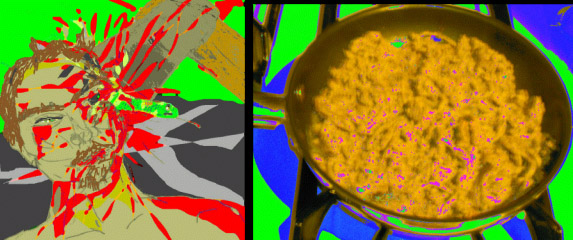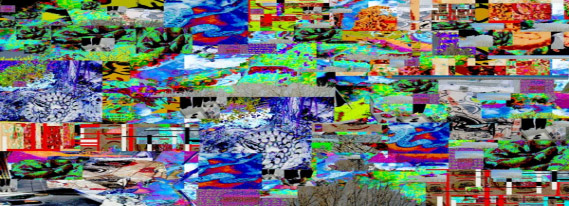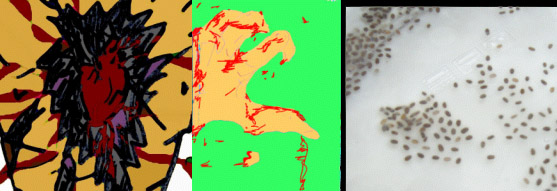There are times when I whisper to myself in the shower, "A cure for the common cold, a cure for cancer."
Sometimes, it's simply back to Dunking the Witch. Would you mind extracting this worm from my head?

However close we were to the answer, the disease of the year, the diet of the month, . . . point up how much of every thing anything we do is merely a trend, a diversion, and then we're back to the season where people won't shake hands: germs.
There's always the problem of population control, modest proposals, soylent green, monkey brains, AIDS.
Ill, the theme park. Some theme parks are open year round, some aren't.
What if everything had the look of Good Bye, Lenin?

The promise of the Enlightenment was the Rational, and the vehicle of the rational was to be Science, but science was only good as long as it was honest, and well, Honesty and Top Secret are on good terms only when there's Silence. Mostly, though, there's Noise.
Logic, however important, won't save humanity: #@!$#% lands one the same side as rational policy—the severed arms. Marlon Brando as Colonel Kurtz. My friends, the Houyhnhnms.
In "Owners of This Country," George Carlin says the experiment is over for us, but whether you believe that government "by the people, for the people" is alive and well is up to you. Should I quote Ray Bradbury on jingles?

Once something becomes a discipline, it acquires its own priesthood, its own rituals, and its own sense of truth--to summarize the work of Foucault, which, in a way, is to re-capitulate Rousseau ("Man is born free, but is everywhere in chains") on the breakdown of democracy.

Imagine the whole world always under construction.
Blah, blah, blah. The work of Deleuze and Guattari, of course, follows Foucault and addresses this interaction between the State and the Nomad as the relationship between the incorporated and the unincorporated. By analogy, even Mercedes Benz can commodify a song by Janis Joplin.

In post-modern terms, i.e., in Baudrillardian terms, there is no ground to sustain the Real as the difference between rationality and superstition as the Enlightenment did.
Yet, there's a sense that matters are incommensurable, but this incommensurability is politics where science and religion attempt to claim territory that belongs to the political.

Outside the asserted power struggle, a voice that echoes in the agora, there is no power struggle at all--priests and scientists alike being incorporated, each their own Elect, each guarding their own secrets, no longer immediate to the public.

Brecht, Kuhn, and Feyerabend have made the relationship of science and politics clear in this regard--as, for example, has the whole history of the cigarette in the 20th Century.

The jewels had been in the family for a long time. He was trying to say, "Emerson, Baudelaire, Nietzsche, Cioran" in the same breath.

But you only get a part-time job.

When asked for a bio, Jeff Crouch said:
"In the Dallas-Forth Worth metroplex of Texas.
Culture as history, politics, and art, the conjunction thereof.
Time as Moebius strip.
Splicing poetry into it."
























